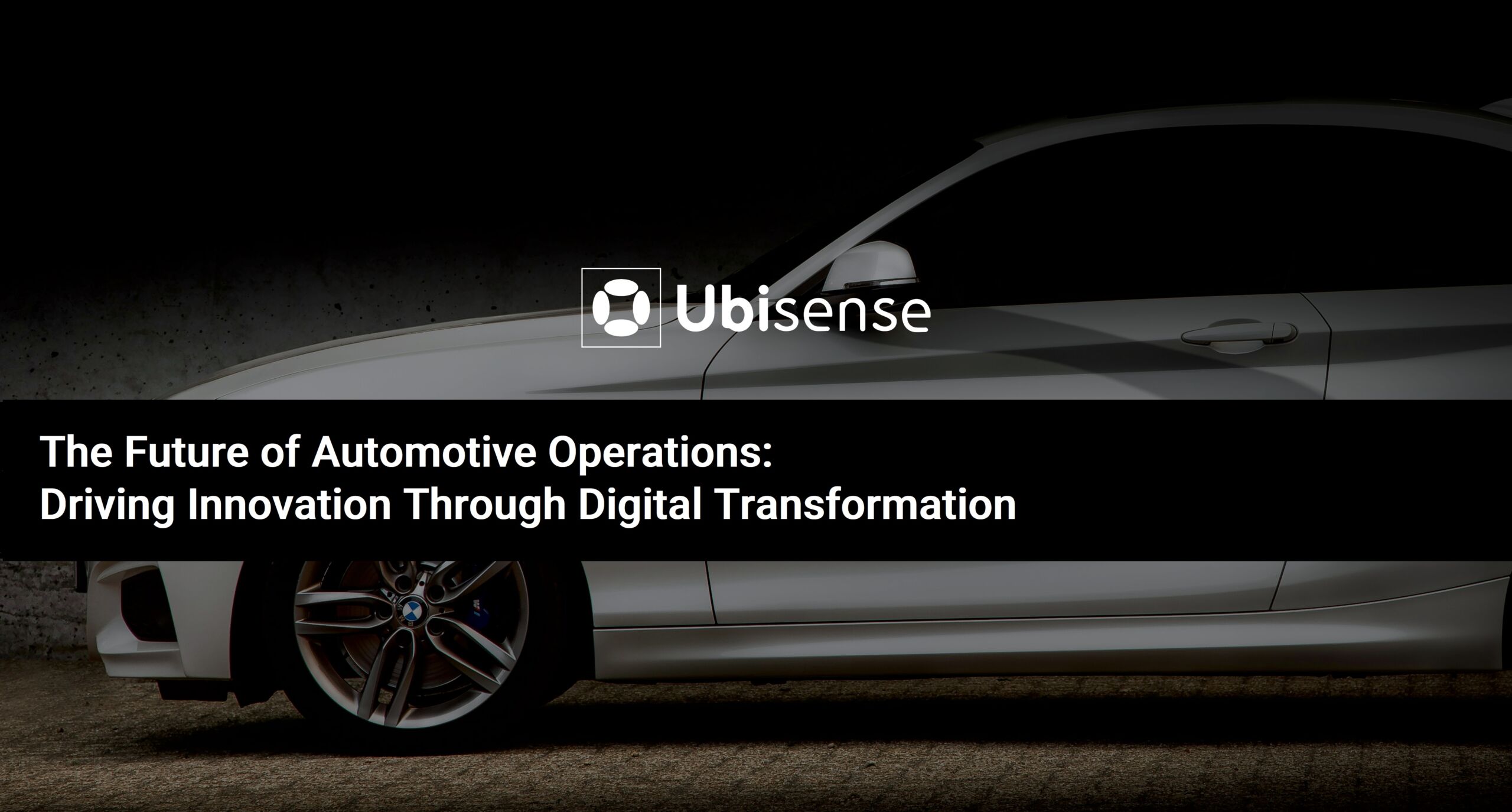The Future of Automotive Operations: Driving Innovation Through Digital Transformation

The automotive sector is accelerating toward a transformative era where innovation and operational excellence are redefining the industry landscape. By adopting technologies such as Real-Time Location Systems (RTLS), digital process twins, Artificial Intelligence (AI), and collaborative robotics, automotive manufacturers and suppliers are revolutionizing production processes, supply chain management, and workforce efficiency.
This evolution is not just about speed and efficiency; it’s about creating a connected, data-driven environment that drives sustainability, agility, and customer-centric operations.
In this thought leadership piece, we explore the intersection of advanced data-driven technologies and automotive manufacturing practices, uncovering how innovation empowers automotive leaders to streamline production, ensure quality, and unlock untapped opportunities in an increasingly competitive market.
1. Transforming Automotive Operations: Innovation at the Core
The automotive industry thrives on precision, speed, and reliability. To meet growing demand, adapt to shifting supply chains, and embrace sustainability targets, automotive leaders are turning to innovative tools that enable real-time insight, proactive decision-making, and scalable transformation.
Revolutionizing Production with RTLS and Digital Process Twin Technology
RTLS technology, coupled with digital process twins such as SmartSpace® by Ubisense, allows automotive manufacturers to monitor people, tools, and components in real-time across production lines. By capturing and simulating data in a digital environment, manufacturers can optimize workflows, predict bottlenecks, and reduce production downtime.
Digital twins mirror physical processes, enabling virtual testing and scenario modelling. For instance, production line reconfigurations or predictive equipment maintenance can be tested virtually before implementation, minimizing risk and disruption.
Enhancing the Automotive Supply Chain with AI and Automation
The automotive supply chain faces increasing complexity, from managing vast supplier networks to ensuring timely delivery of critical parts. AI-driven platforms can analyze operational data to predict inventory needs, mitigate disruptions, and optimize logistics in real-time.
In addition, 3D printing (Additive Manufacturing) is driving greater supply chain flexibility by enabling on-demand production of specialized components. Manufacturers can reduce lead times, cut costs, and deliver custom-built solutions to meet unique customer requirements.
Empowering Automotive Workforces with Collaborative Robotics
The adoption of collaborative robots (cobots) in the automotive industry marks a shift toward a smarter, safer, and more efficient production floor. Cobots work alongside technicians, automating repetitive or high-precision tasks such as assembly and inspection. This human-robot synergy boosts productivity, improves quality, and ensures workplace safety.
However, to achieve true operational transformation, it’s essential to empower workers with the right skills. Workforce upskilling in AI, robotics, and data analytics will unlock higher-value work and foster a culture of continuous improvement.
2. Key Pillars for Challenger Leadership in Automotive Operations
Adopting a Connected, Data-Driven Platform
The automotive sector thrives on data, but fragmented systems and silos often obscure critical insights. A connected, platform-based approach—such as Ubisense SmartSpace®—unifies operational data across departments, enabling manufacturers to see, measure, and optimize every process.
This horizontal integration paves the way for scalable solutions like predictive maintenance, automated quality control, and seamless digital twin simulations, ensuring agility and competitiveness in a rapidly changing market.
Sustainability and the Green Automotive Factory
Sustainability is at the forefront of automotive transformation, driven by environmental targets and consumer demand for greener vehicles. Smart factories equipped with IoT-enabled sensors, energy-efficient robotics, and real-time monitoring systems are helping manufacturers reduce waste, optimize energy consumption, and transition to net-zero operations. (Learn more about green transformation in the industry here)
Green initiatives such as circular manufacturing (recycling materials) and carbon-neutral production further demonstrate how innovation can align with environmental stewardship and long-term economic success.
Navigating the Industrial Metaverse in Automotive Manufacturing
Immersive technologies like Augmented Reality (AR) and Virtual Reality (VR) are revolutionizing automotive design, training, and collaboration. From virtual vehicle prototyping to AR-driven assembly line guidance, these tools enhance precision, reduce errors, and facilitate remote workforce training.
In the industrial metaverse, manufacturers can collaborate globally, simulate complex assembly processes, and accelerate the adoption of new technologies—creating a flexible, future-proof production ecosystem.
Conclusion
The automotive industry stands at the crossroads of transformation, where connected, data-driven solutions are shaping a future defined by innovation, sustainability, and operational excellence.
By embracing technologies such as RTLS, digital twins, AI, and robotics, automotive leaders can optimize production processes, empower their workforce, and lead the charge toward greener, more efficient manufacturing practices.
To thrive in this new era, organizations must dismantle operational blind spots and unlock hidden data—transforming challenges into opportunities for growth, agility, and differentiation.
As pioneers of change, automotive leaders who embrace the challenger mindset will define the industry’s next generation, ensuring they remain agile, competitive, and ready for the future.
Ready to Drive Operational Excellence in Your Automotive Operations?
Discover how Ubisense SmartSpace® can transform your production processes with real-time insights and innovative technologies.
Let us help you unlock the future of automotive manufacturing.